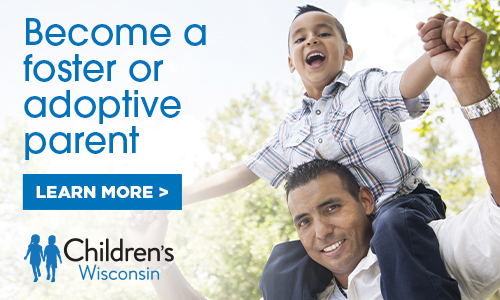
Do you ever get stuck in a really bad mood?
Let’s call this bad mood “Wanda,” just for kicks and giggles. Wanda is very intelligent. She doesn’t bother me at work, but the second I pick my kids up from daycare/school I can feel her pop up like a puff pastry.
I know my kids will yell and scream and throw tantrums, and I know this is a reflection of their ages and trauma-related pasts. I know I have chosen to walk this road (because my sister won’t let me forget it), but I also know I should have a place that is safe for me to vent about Wanda without worrying that I will have to defend myself. I think having a community to talk about Wanda is extremely important for foster-loving parents. I feel like Wanda is different than the run-of-the-mill, non-foster-loving bad mood.
I have to face the fact: I made a decision to parent a child that has lived a life I can’t even imagine. I am not able to draw on my past to gain wisdom in understanding my own child. I can’t call my mom and ask her how she dealt with me when I threw a brick at my brother inside the house because he was too loud. Hello...I didn’t do that growing up. I can’t even imagine a situation where I would have thought to go dig a brick paver out of the garden, carry it into the house and throw it off the stairs at my brother.
 How do I deal with this kind of child-rearing challenge? Do I stuff it inside because I don’t want to offend, scare or share too much information with other parents who want to help? Do I quit because this is not what I signed on for? Do I cry?
How do I deal with this kind of child-rearing challenge? Do I stuff it inside because I don’t want to offend, scare or share too much information with other parents who want to help? Do I quit because this is not what I signed on for? Do I cry?
Well, shocked silence was what followed! I can’t remember crying in this situation, but I remember tears a lot in the beginning. I remember wondering what or who could help me with such a grossly out of control sibling group of four. These four challenging children (ages 2, 4, 10 and 12) were the seeds for what has grown into Wanda.
Wanda is not just a bad mood, she is my own trauma related behavior that I must face and learn to control when triggered by my kids’ trauma-related behavior (the carousel never stops turning)! I must remember I am not alone. I have my husband, who is on this foster-loving journey with me, and I have the support of our agency and other nameless individuals who chime in on Facebook posts on Connecting Bridges.
I know I didn’t get around to answering any of those questions about how I dealt with the brick situation, but that isn’t what is important! Frankly, I can’t even remember what I did. The incident is branded in my memory and hardwood floors for the rest of eternity, but how I dealt with the situation (and so many other similar circumstances) doesn’t seem as important.
I had a truly awesome Wanda-moment the other night as I was sitting at the dinner table with my four kids under the age of 5 and thinking, “Can I just take a break? Can I go up to my room and go to bed?”
Of course the answer is NO (I am healthy enough to realize this is the right answer). Why do I do this to myself? This is a question I ask myself a lot every day. This is a question my parents, siblings, cousins, people I don’t even know and, yes, even my husband asks me whenever I lose my temper even a little. Why do I feel like I have to keep it together every second of the day?
Wanda-moments are the worst when I am alone. At least I have someone who can help me keep it together. This is where having a foster-loving-partner comes in handy (husband, wife, partner, older child, etc.). After all those unanswered questions, I have to leave you with a story that has an immediately applicable lesson!
“Mistletoe,” I yell as I throw my hands up in the air, pot of water boiling, ground beef burning, two 2 year olds clinging to my legs, five minutes after my husband walks in the door as I pry off the screaming toddlers, pass him the spoon and walk upstairs.
This has been our agreed upon “safe-word” since we started our journey five years and 22 placements ago. It means I can’t take this and I don’t have the patience to explain my feelings and I need three minutes to compose myself away from it all. If you and your partner-in-crime don’t have a safe word, I would highly recommend finding one.
“Mistletoe” came about after watching some Christmas movie (before kids) where a couple was visiting their families and it meant that person had had enough and it was time to go. Either person can use it and no excuse is needed. The rules for use of our safe-word are very simple. We get three minutes (not half an hour!) to go to another room to cool down and take a breath, get a handle on our Wanda-situation and when we return we are refocused and ready to tackle the problem(s) at hand.
So...yes, help for a case of the Wandas is a little Mistletoe.
Children's Wisconsin Resources

Written by
Allison Romens
Foster Parent
Related Stories
No related articles found.



